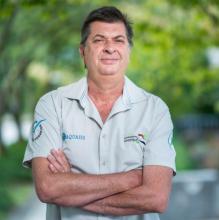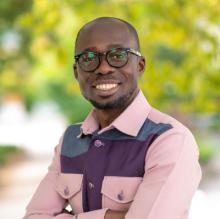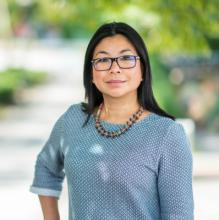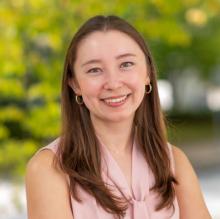Since 2010, I have been working with development practitioners to organize, analyze, and present their data in an approachable format. Recently, I am trying to better understand how to get our research into the hands of decision makers through writing policy briefs.
Research Description
After the COP21 Paris Climate Agreement, many countries committed not only to mitigating emissions but bolstering farmer adaptation. India’s commitments are shaping the next wave of their agricultural policies aimed towards reducing crop production climate risk. I am working with advocates in India who want these new policies to support smallholders (less than two hectares) and rainfed farmers. My partnering organizations (e.g., Institute of Livelihoods, Resources, and Training) have track records of writing agricultural policy guidelines with Members of Parliament (MPs), but often do not have the bandwidth to provide rigorous empirical support for their advocacy. In an effort to guide more equitable public support, I am generating a policy brief containing estimates for how public spending has historically been allocated to different types of farmers. This policy brief will become a portion of my broader doctoral dissertation project where I am empirically estimating smallholders’ crop production at the global level.
What does being a Public Scholar mean to you?
Being a public scholar means conducting research that challenges and tests public assumptions. My research is mainly motivated by large claims that I hear or have even used when discussing sustainable agriculture and development. I would like to listen to the ideas that non-academics have about how to make a more equitable society, then go and empirically test those ideas and relay the findings to decision makers.
In what ways do you think the PhD experience can be re-imagined with the Public Scholars Initiative?
Through exposing students to applied research with partners who can ground us, I think that PSI can help students find meaningful topics. For me, this is a great opportunity to hone a new skill set and try to figure out how to make my research more actionable.
How do you envision connecting your PhD work with broader career possibilities?
I envision connecting my Ph.D. work to career possibilities through public engagement. I have been working on side projects with the Aleph Policy think tank (alephpolicy.org) to automate their ethnoreligious mapping efforts, and have led webinars/technical workshops to different NGO's and think tanks about some of the skill sets I've gained through schooling. Through this type of engagement, I hope to find a way to make myself useful to teams who are doing great work.
How does your research engage with the larger community and social partners?
My partnering organizations (e.g., Institute of Livelihoods, Resources, and Training) have track records of writing agricultural policy guidelines with India's Members of Parliament, but often do not have the bandwidth to provide rigorous empirical support for their advocacy. In an effort to guide more equitable public support, I am generating a policy brief containing estimates for how public spending has historically been allocated to different types of farmers.
Why did you decide to pursue a graduate degree?
No other environment has been as stimulating or motivating as an applied research project. For the last 7 years, I have been a research consultant working on development issues. Advancing my skillset so I could be more impactful was a clear choice.
Why did you choose to come to British Columbia and study at UBC?
My lab and my advisor are an amazing team to work with ever since we first met. I am always challenged, humbled, and motivated by them.
My research is mainly motivated by large claims that I hear or have even used when discussing sustainable agriculture and development. I would like to listen to the ideas that non-academics have about how to make a more equitable society, then go and empirically test those ideas and relay the findings to decision makers.




